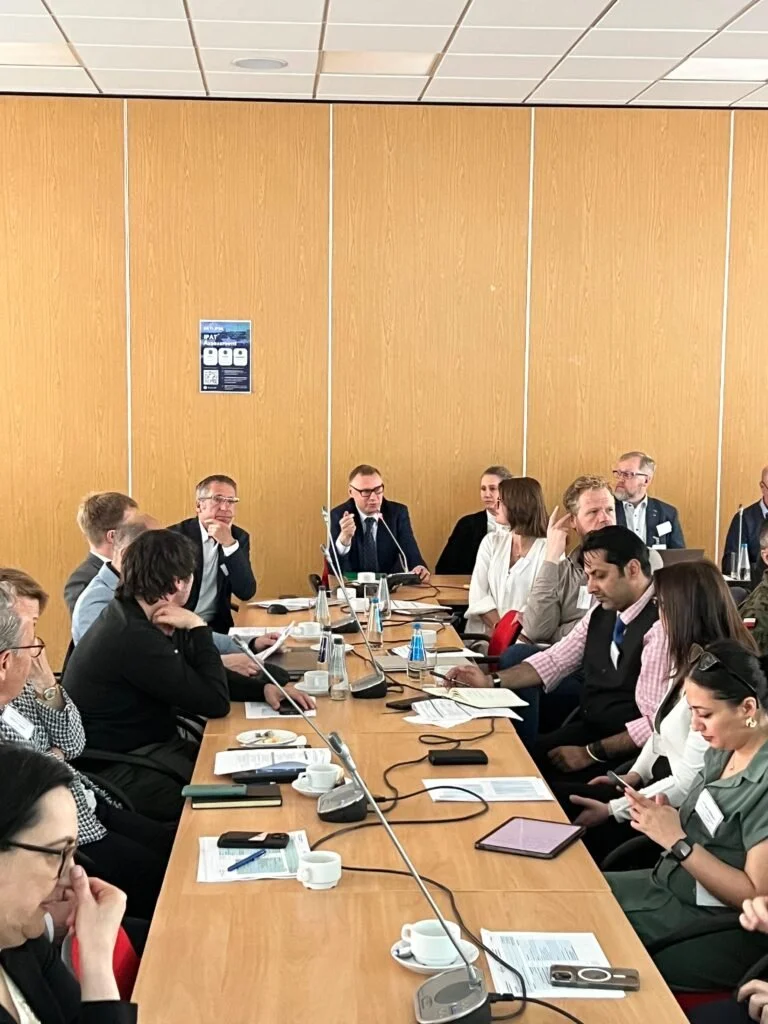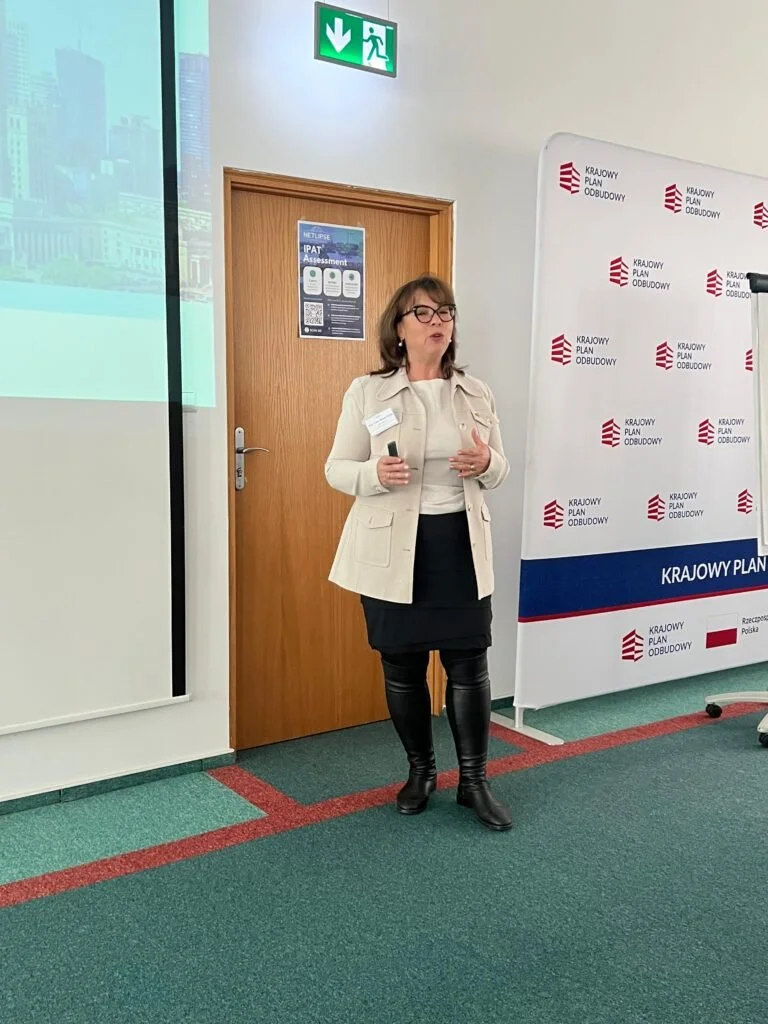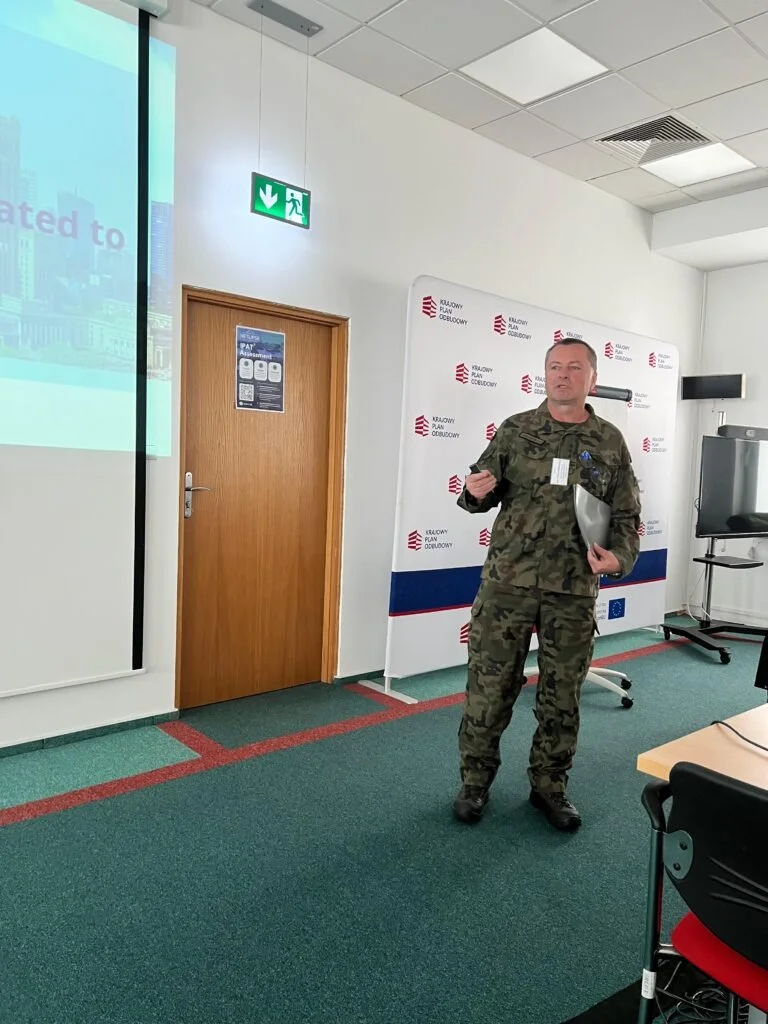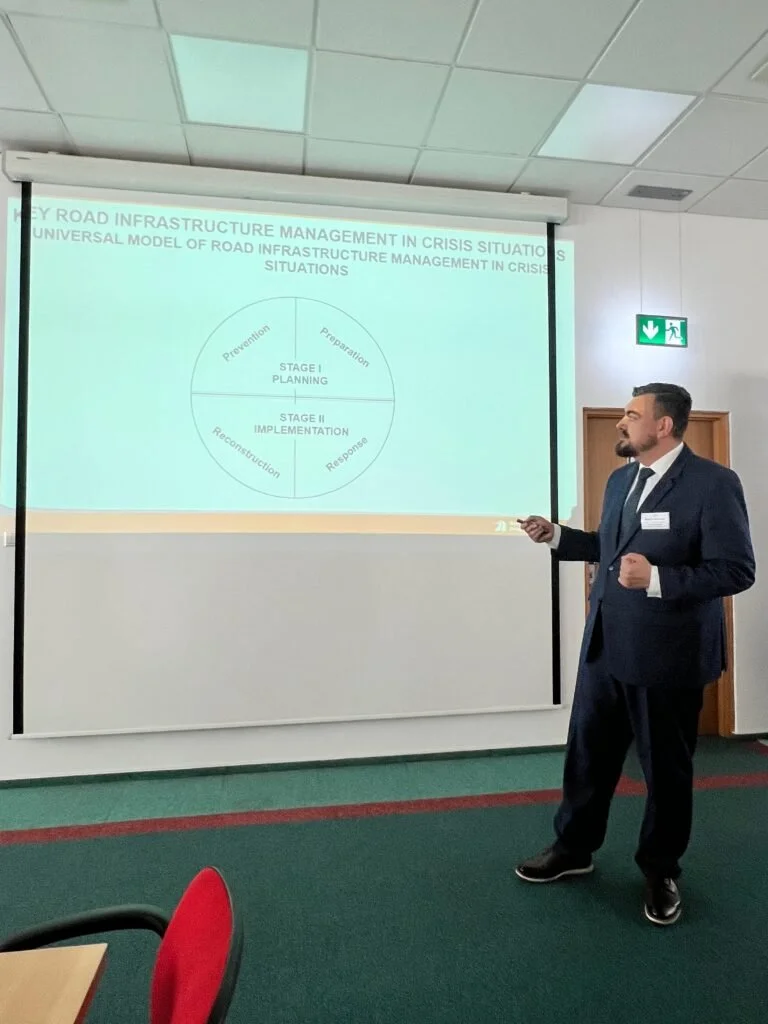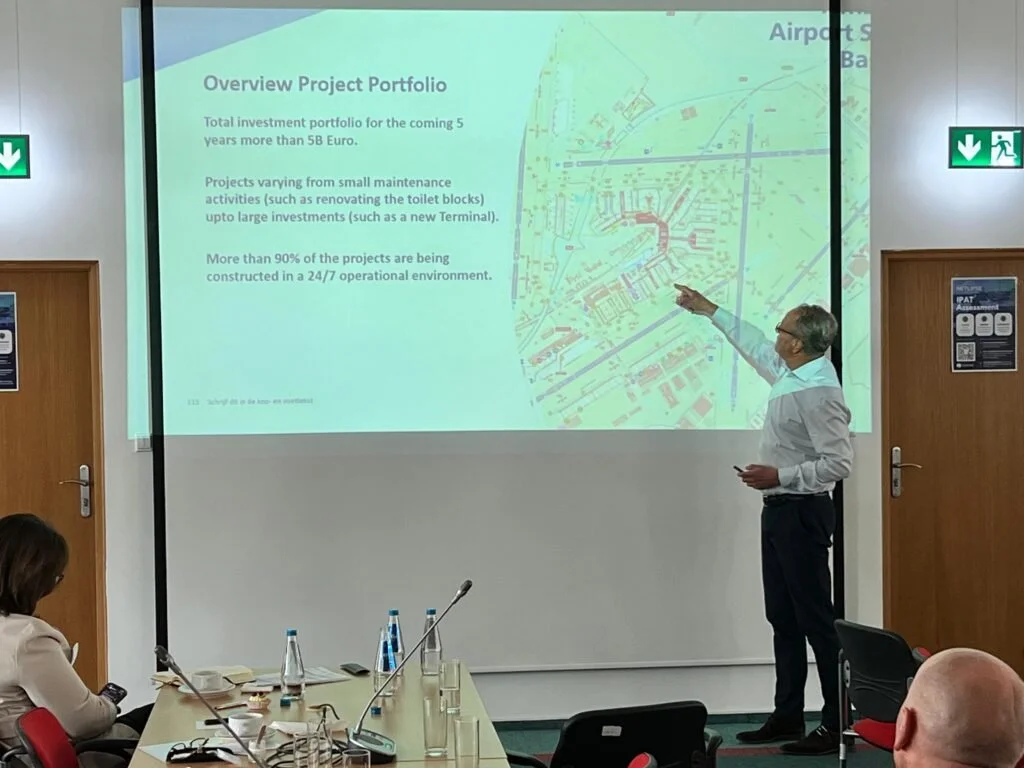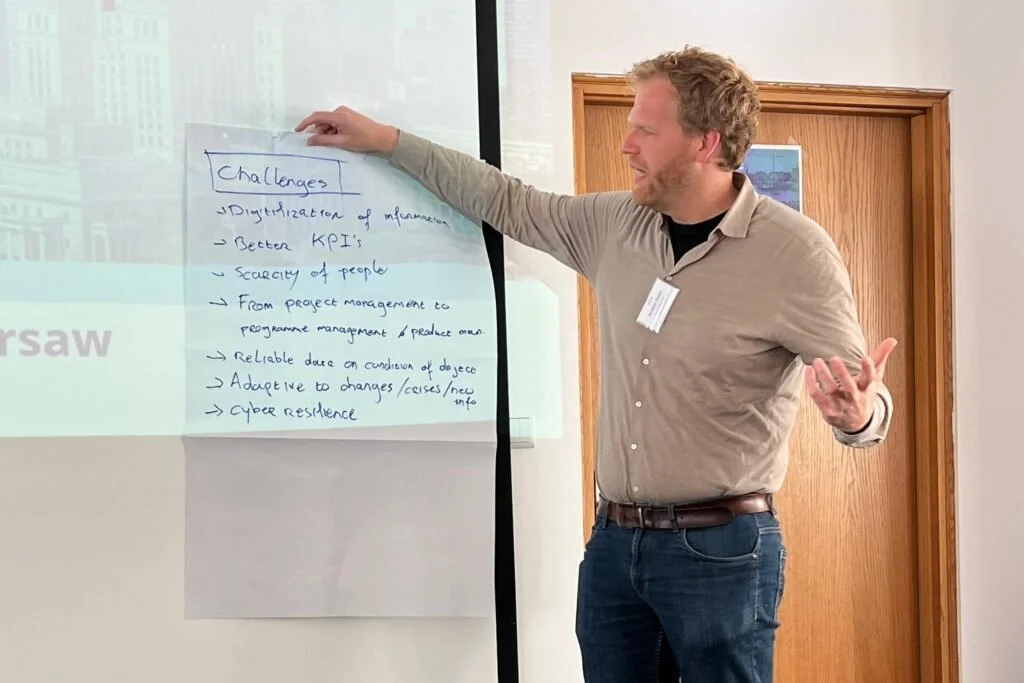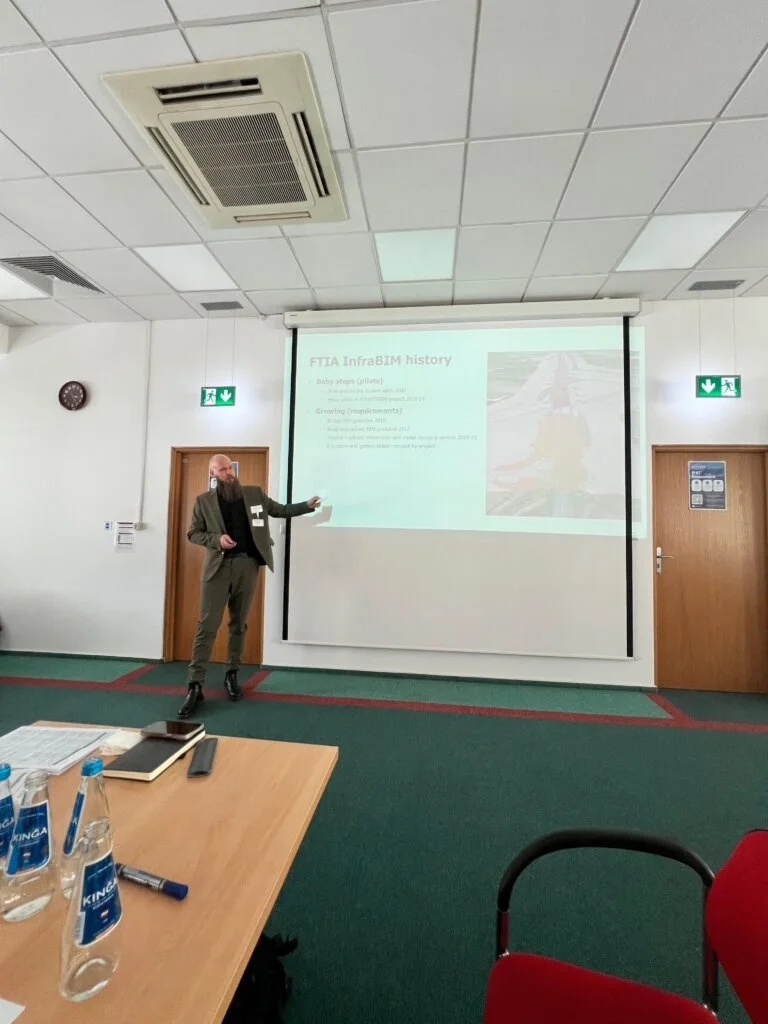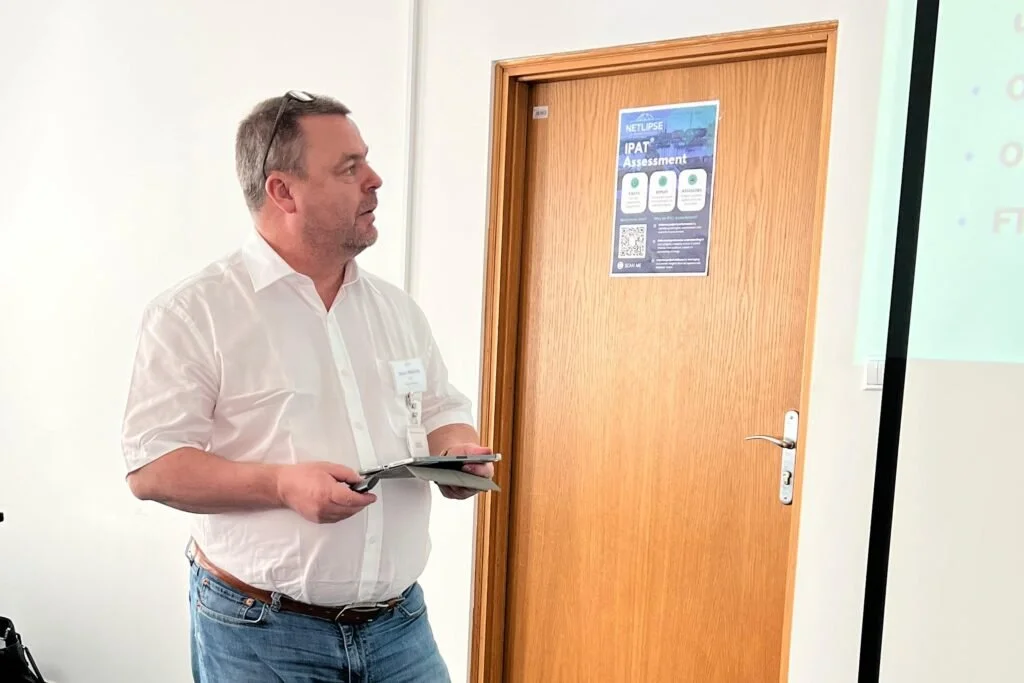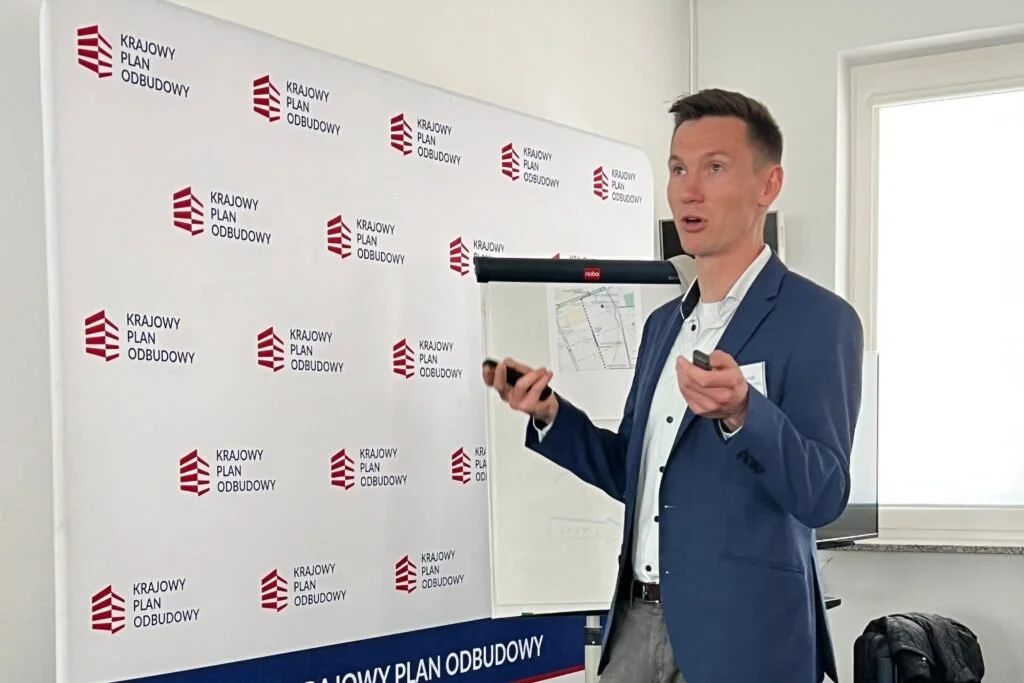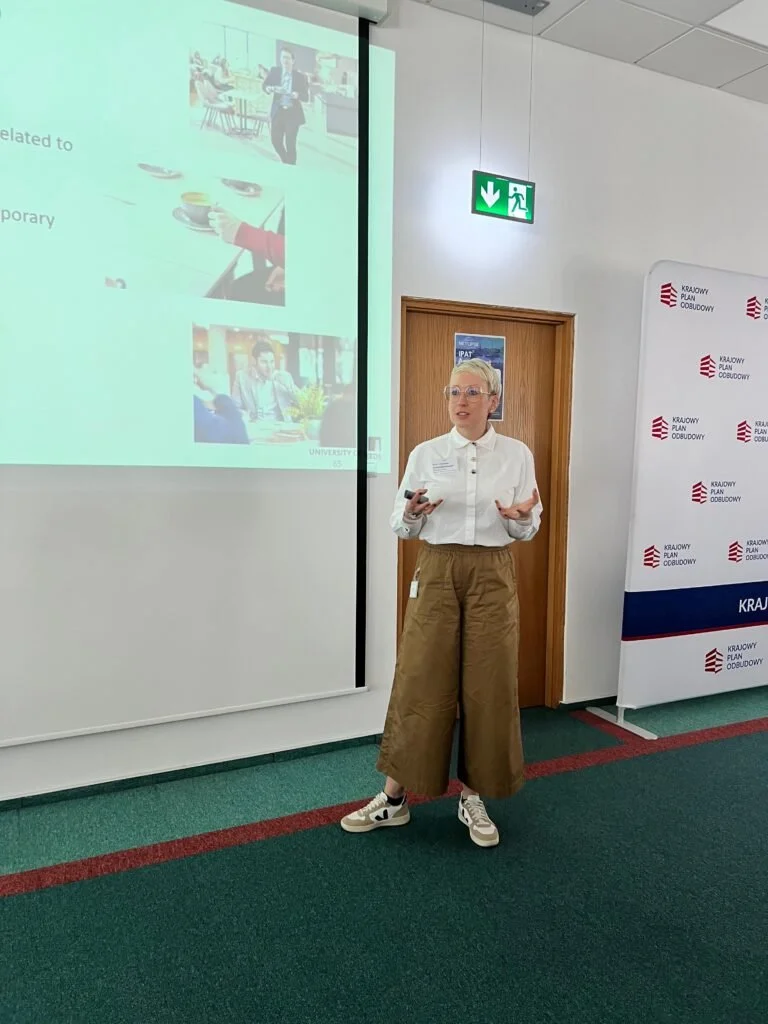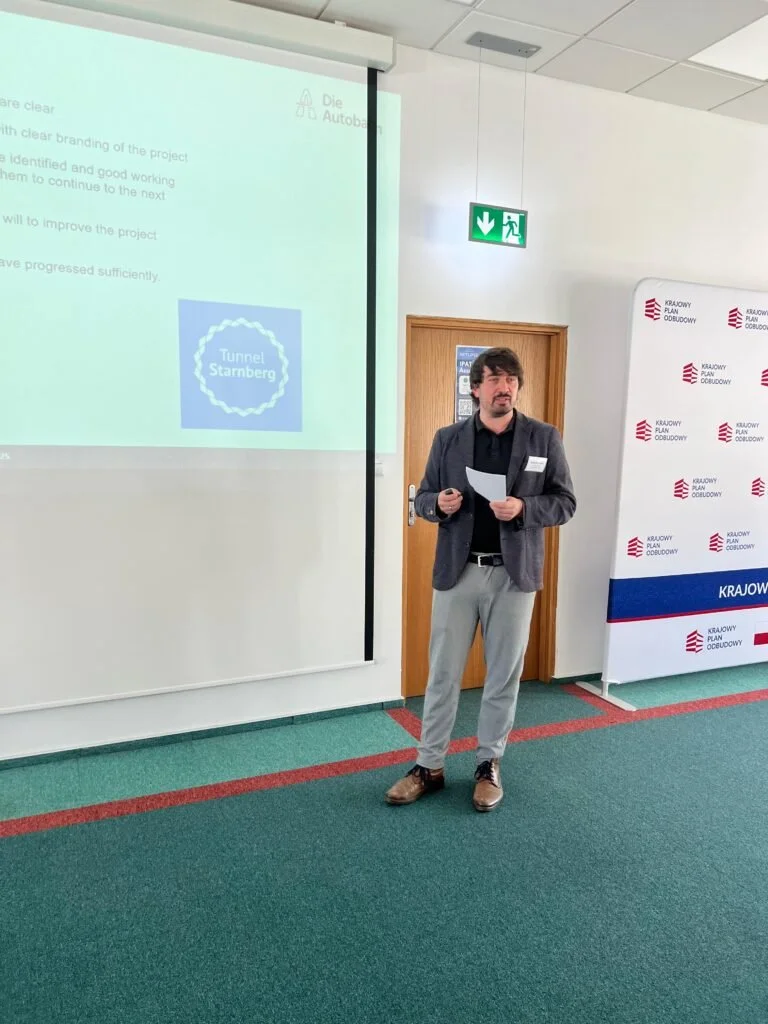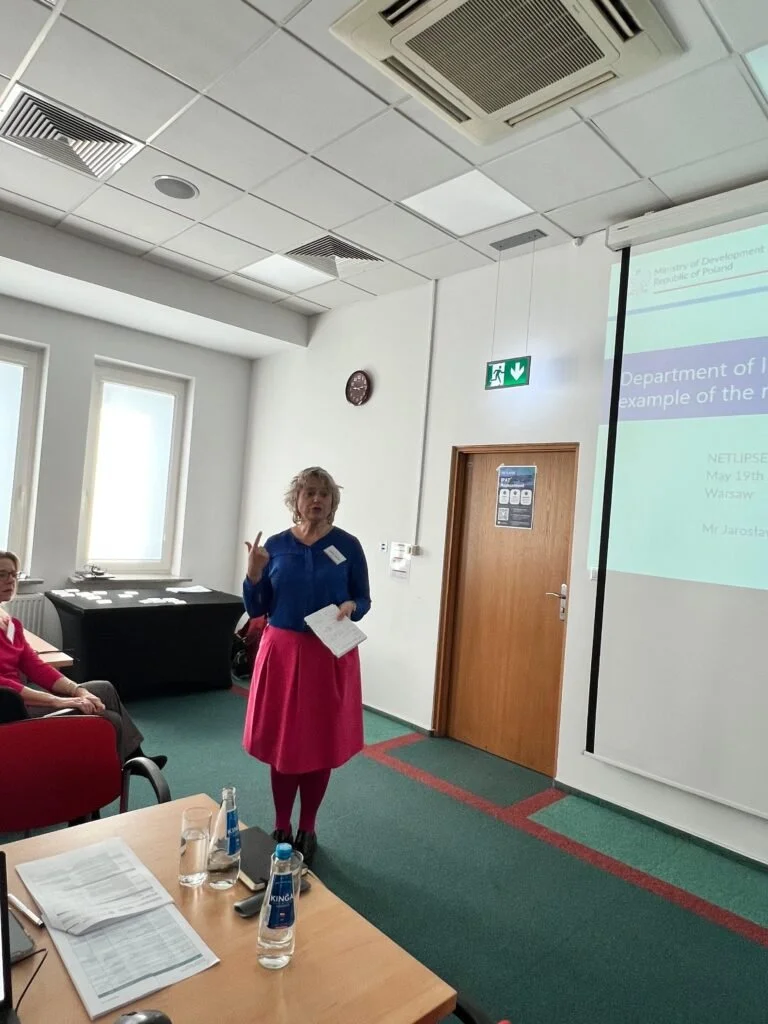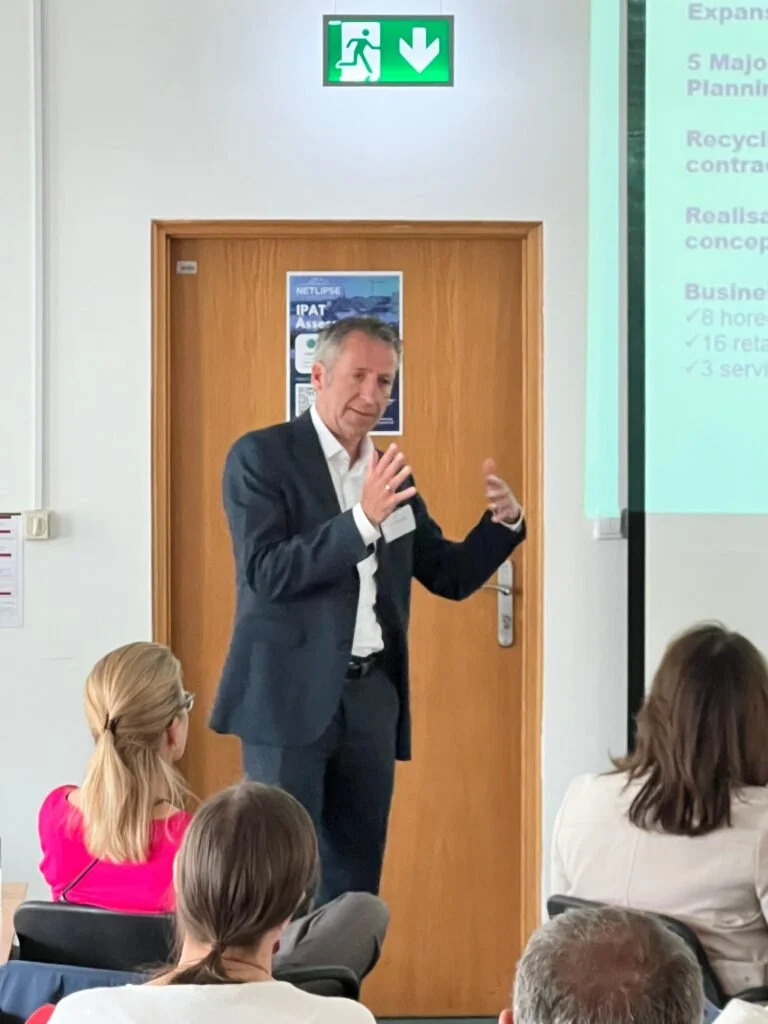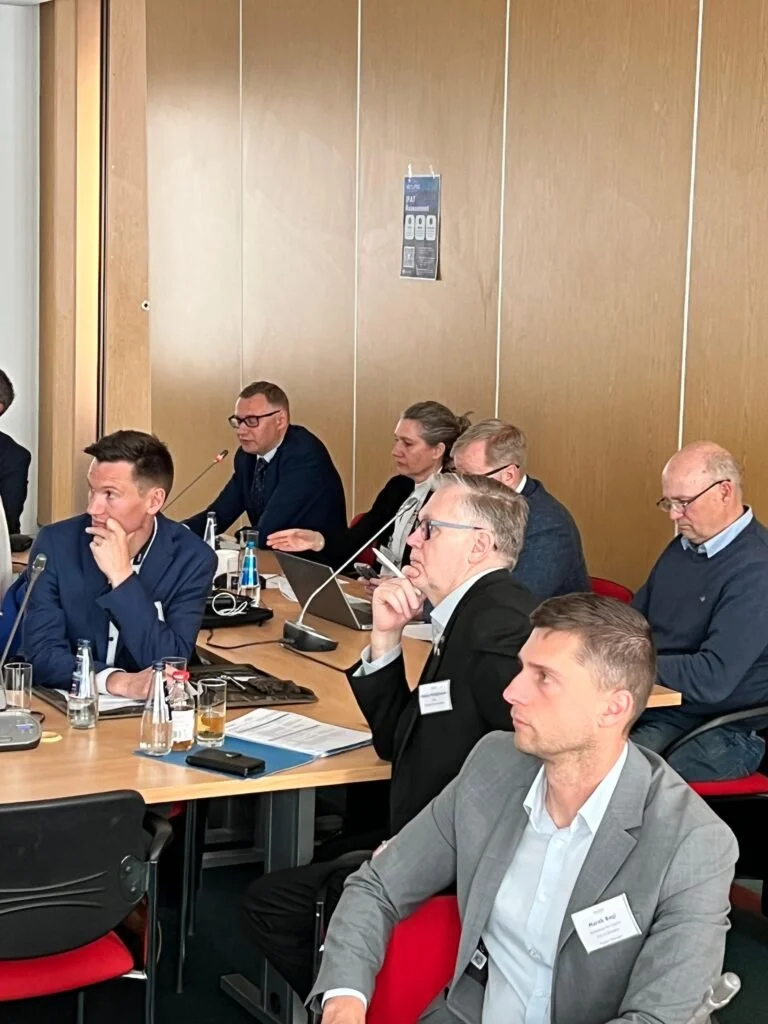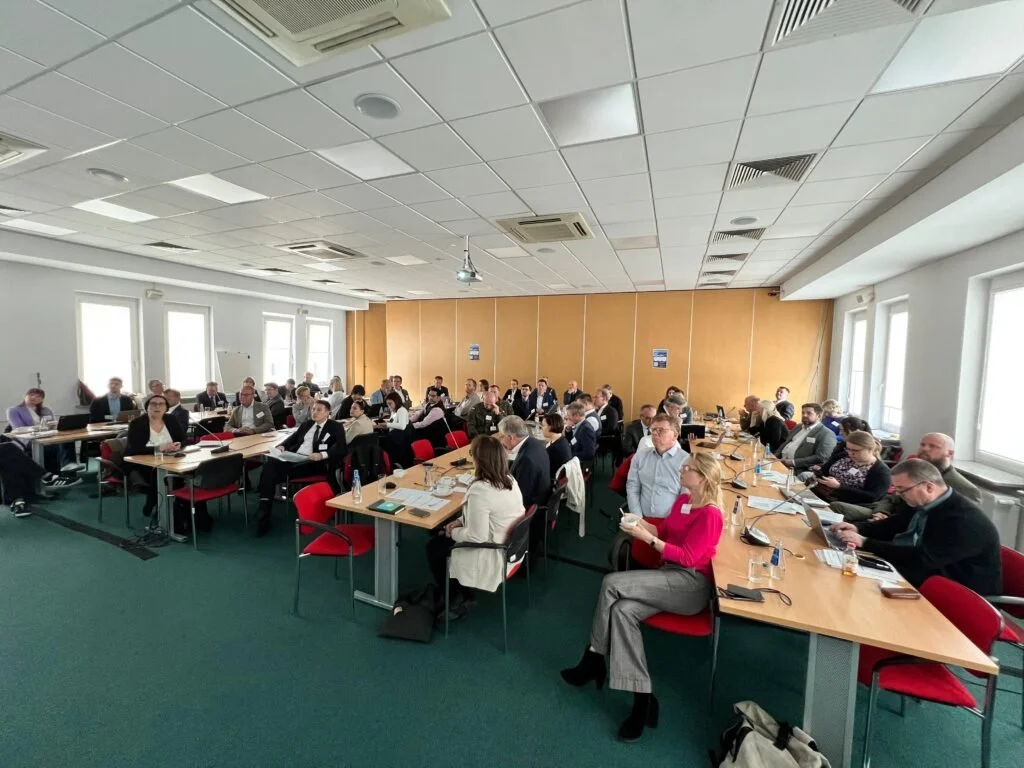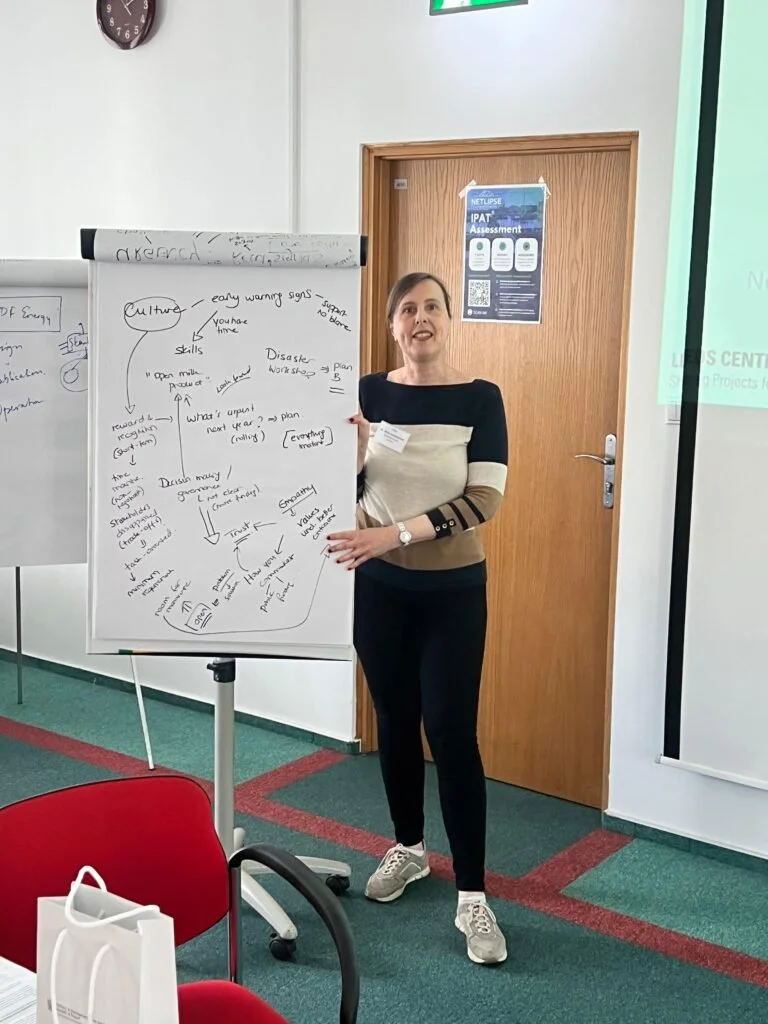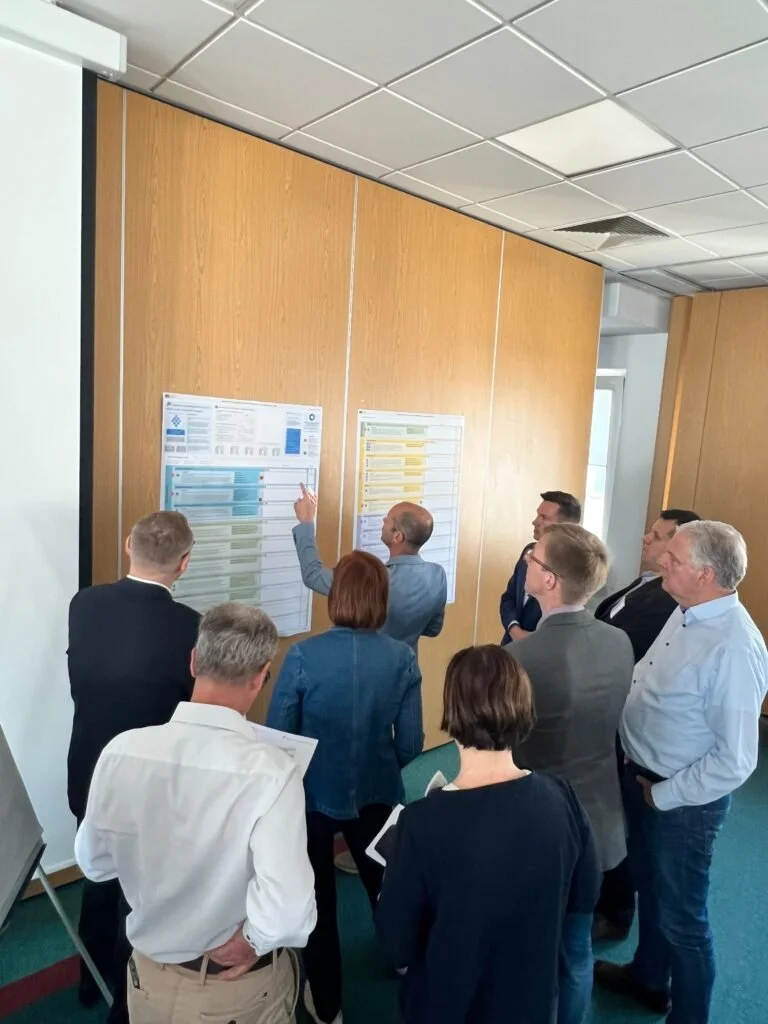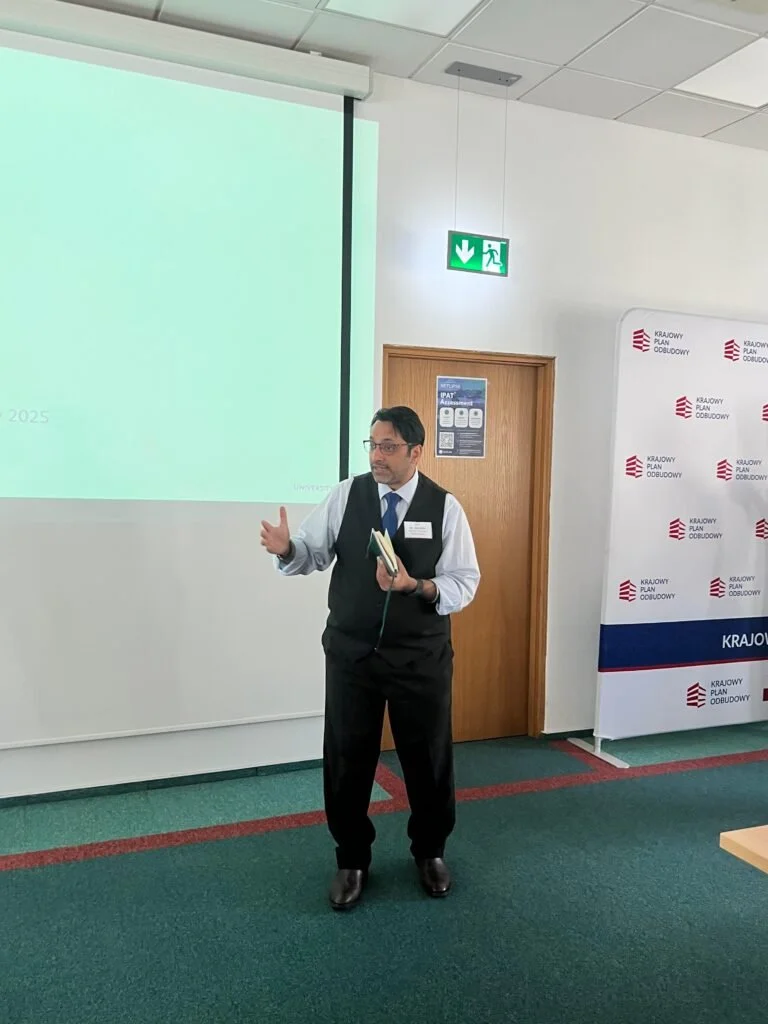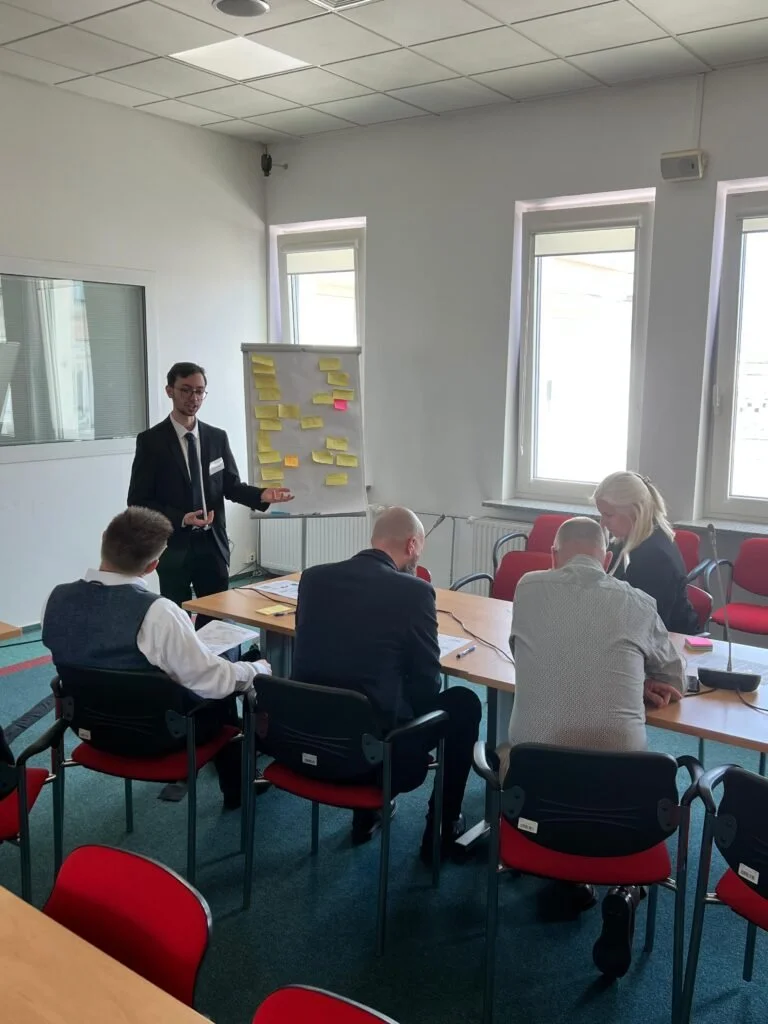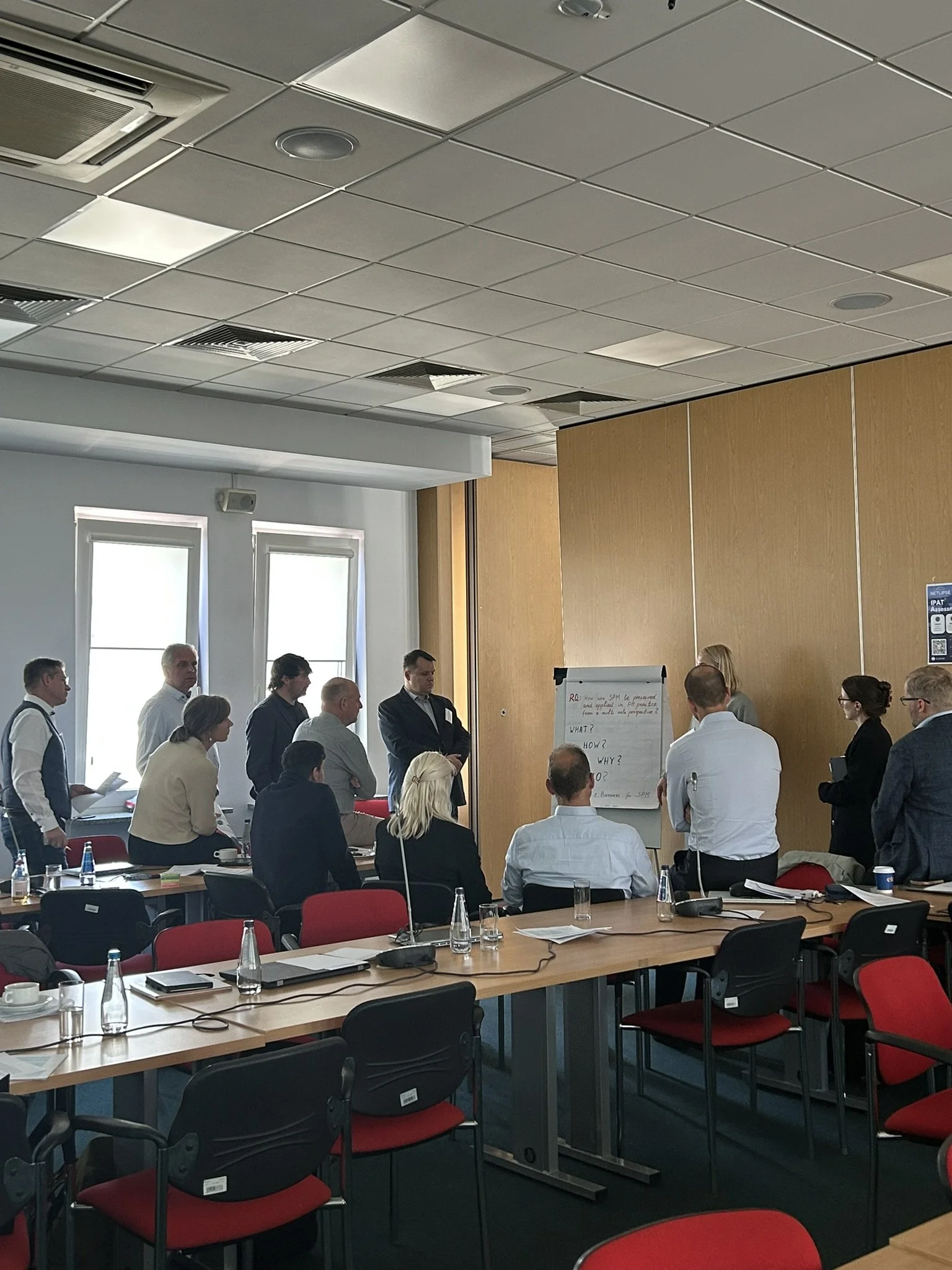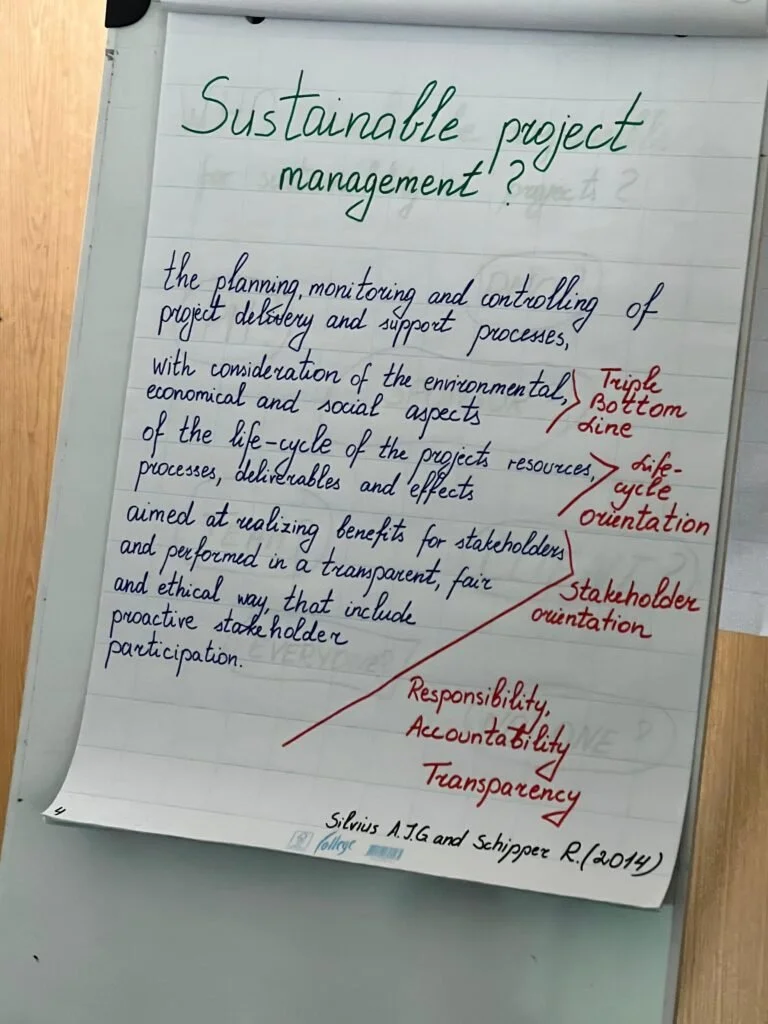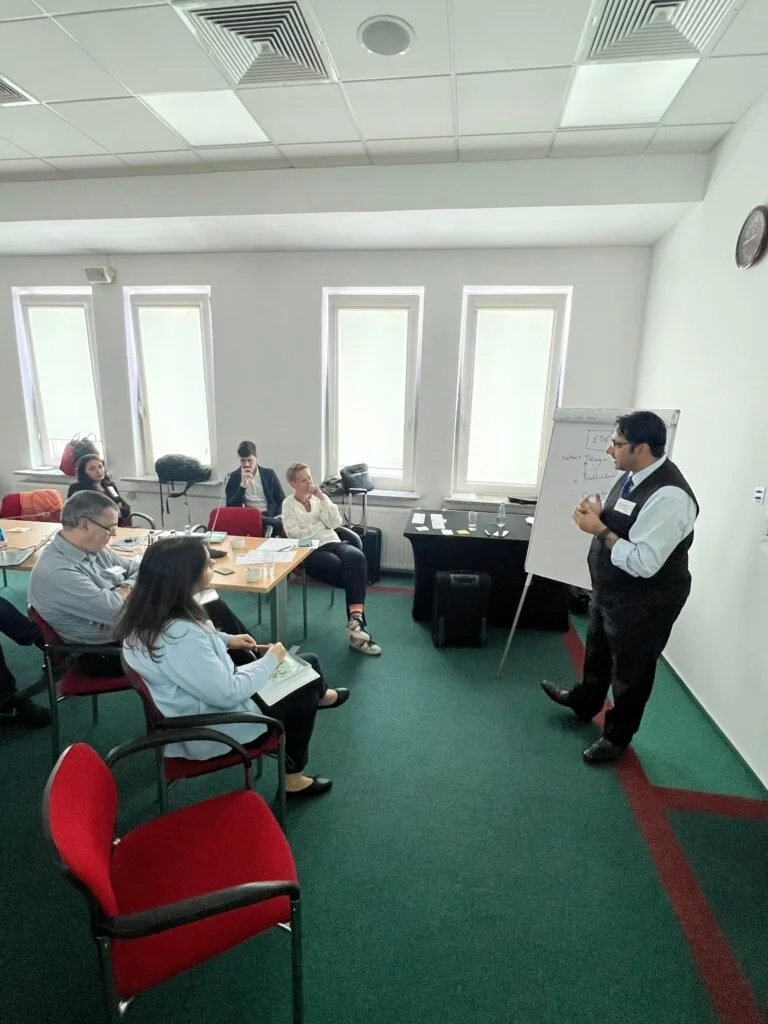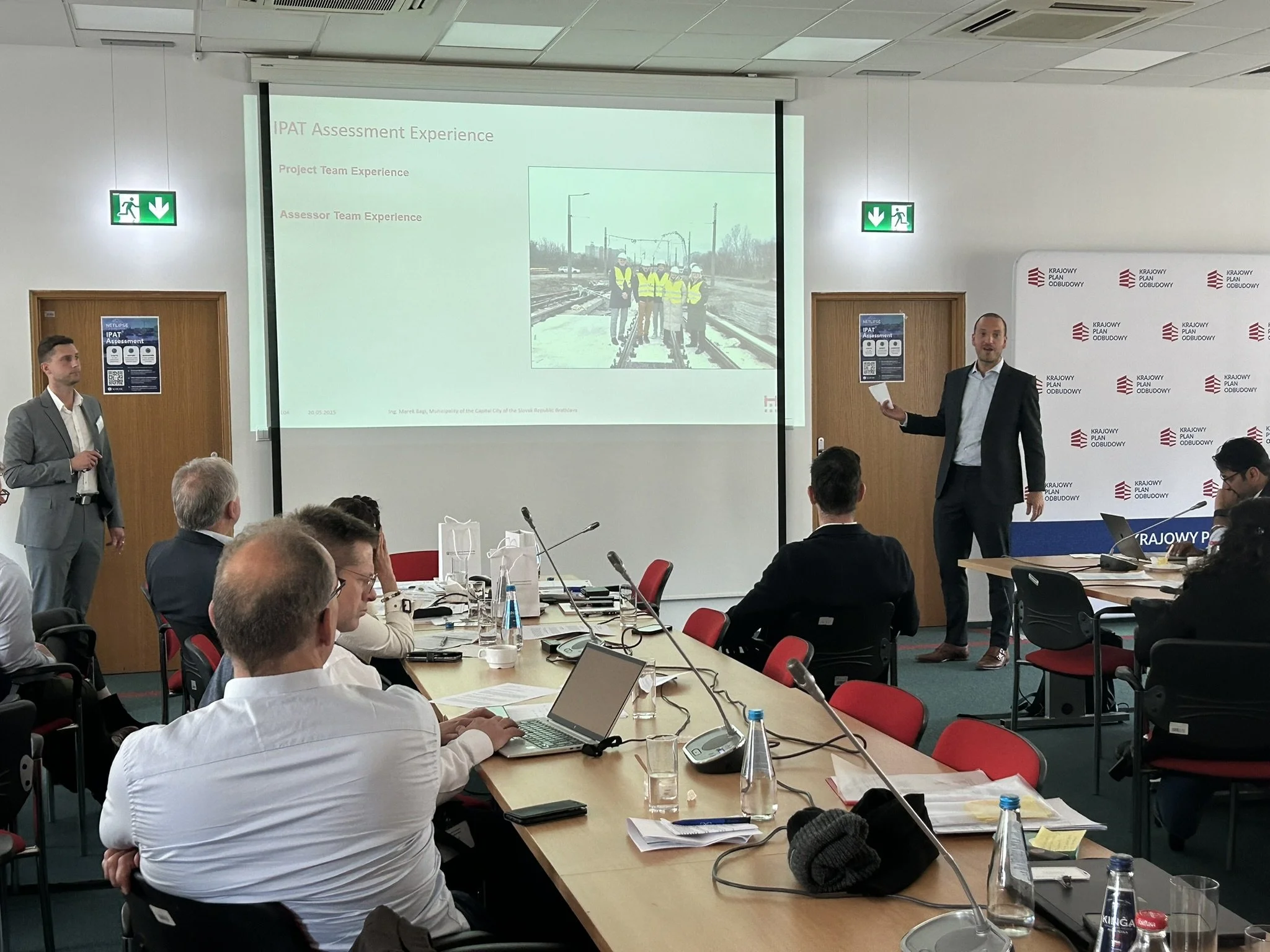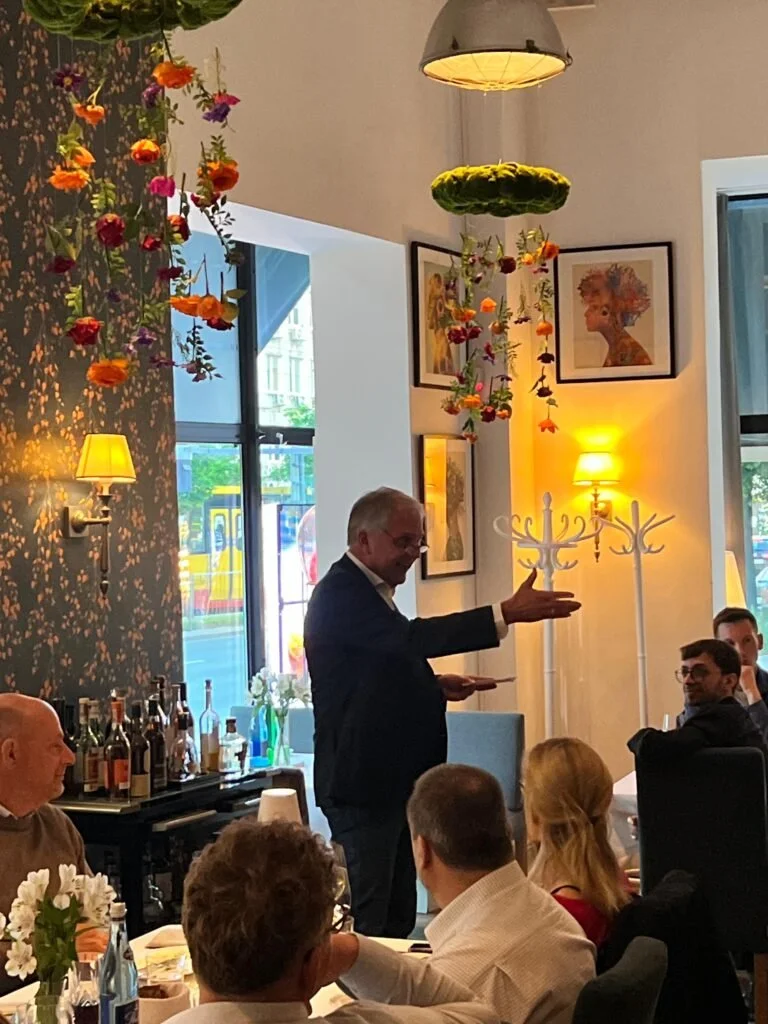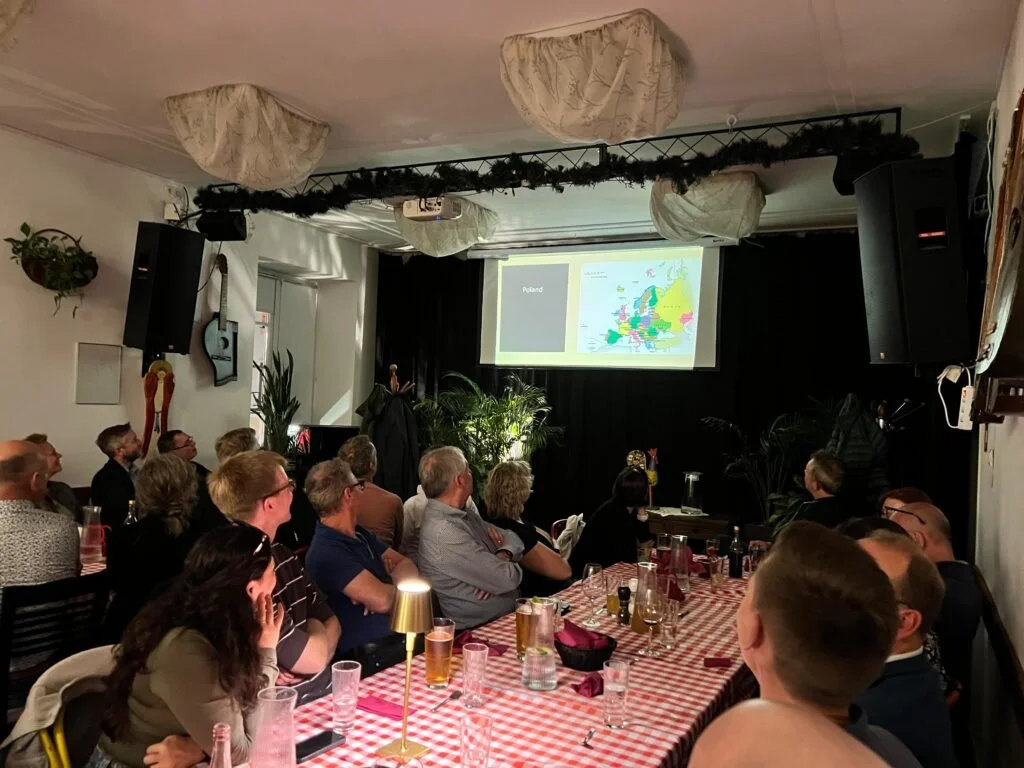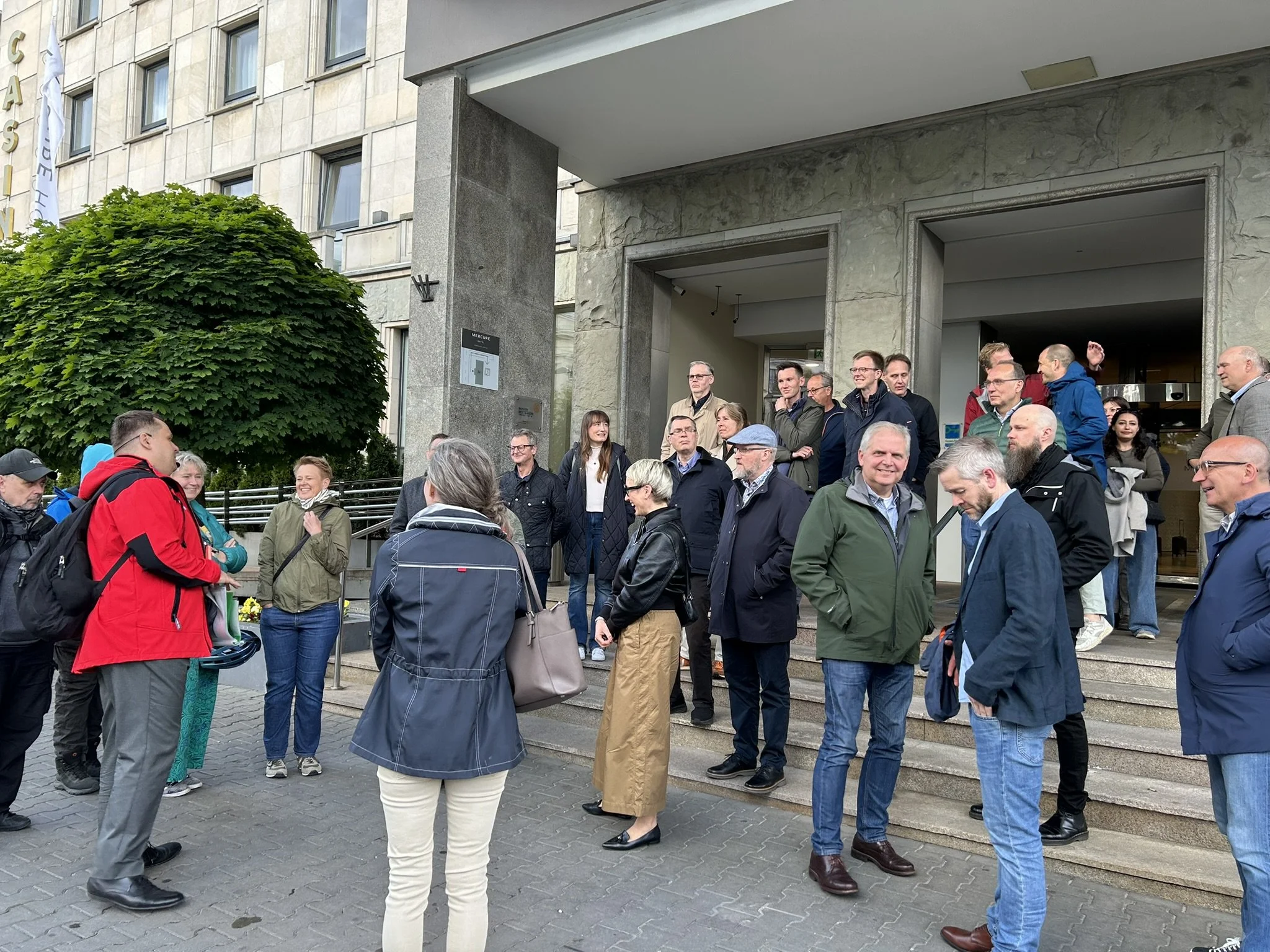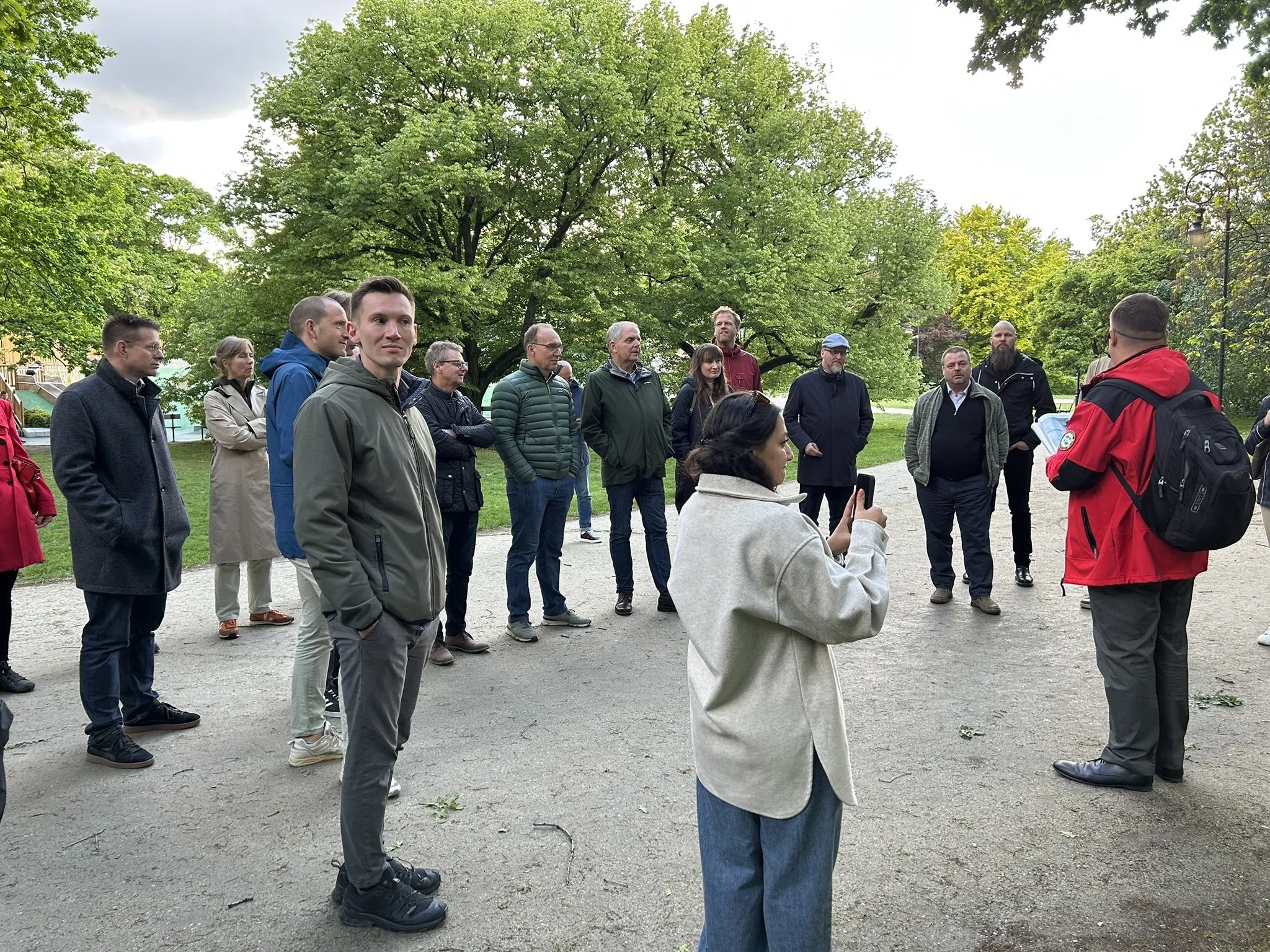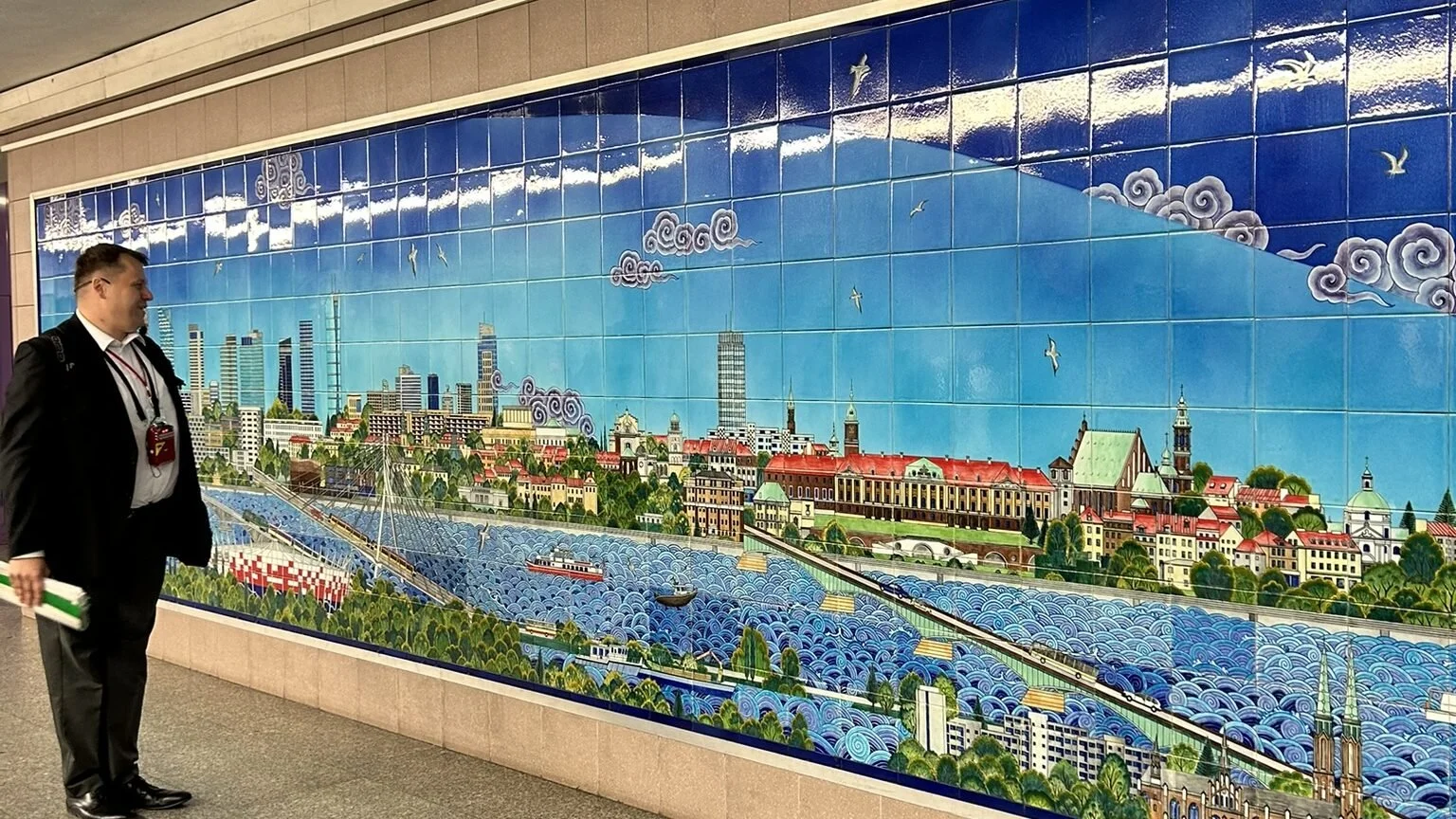Report of the Warsaw Network Meeting
Network Meeting Warsaw - Report
The 38th NETLIPSE Network Meeting brought together public sector professionals from over 11 countries for two days of discussions focused on the management of large infrastructure projects across Europe.
We are grateful to the Polish Ministry of Development Funds and Regional Policy for hosting the meeting in Warsaw, and to all the speakers, workshop leaders and participants who contributed by sharing their experiences and insights.
Below is a summary of the presentations, along with photos from the event.
The Department of Infrastructural Programmes as the Example of the Multi-Topic Programme Manager
Jarosław Orliński(PL) - Ministry of Development Funds & Regional Policy
Read more...
Mr. Orliński welcomed the participants to Warsaw followed by a presentation on the portfolio of the Ministry of Development Funds & Regional Policy. The Ministry is responsible for the implementation of European Funds and the programming and coordination of the regional development policy. Poland was the largest beneficiary of CEF Transport in the EU, with over 18% of the funds that were granted in the transport sector being allocated to projects from Poland.
The main areas of investments for the Ministry are:
- Reducing of the economy emission intensity;
- Environmental protection, including adaptation to climate change;
- Development of the TEN-T road network and multimodal transport;
- Road infrastructure for cities;
- Development of rail transport in Poland;
- Development of low-emission public transport in cities;
- Improving energy security;
- Protection of cultural heritage and development of cultural resources;
- Strengthening the strategic healthcare infrastructure.
Introduction NETLIPSE
Pau Lian Staal-Ong (NL)
- NETLIPSE
Read more...
Pau Lian Staal-Ong introduced the NETLIPSE Network, its objectives and activities, including the IPAT Assessments and Network Meetings.
Dual Use Infrastructure Dedicated to Troop Movement
Colonel Jan Czerniakiewicz (PL) - National Movement Coordination Centre
Read more...
Colonel Czerniakiewicz shared the army’s perspective on the role of strategic transport infrastructure. He explained that having dual-use infrastructure is crucial for the ability of armed forces to respond quickly and effectively to threats and crises. He explains that by making simple adjustments to existing infrastructure and/or new projects, the objects can serve not only a civil but also a military purpose. Therefore, project managers should always ask the questions:
“How can my project not only serve a civil use but also a military one?”
“How can critical infrastructure be defended in case of threats?”
Management of Key Road Infrastructure in Crisis Situations
Marcin Nowacki (PL) - GDDKiA
Read more...
Mr. Nowacki explains that the GDDKiA is not only responsible for the development of road infrastructure in Poland, but is also responsible for the management of critical infrastructure in crisis situations, ranging from floods to road traffic accidents.
The GDDKiA responds using a 4-phase approach:
Prevention
Preparation
Response
Reconstruction
Works at Cargo Points Located on the TEN-T Network
Gabriela Popowicz (PL) - PKP PLK: Department of the European Union Funds
Read more...
Mrs Popowicz presented the work that PKP PLK has been doing to adapt existing cargo points the existing TEN-T Railway Network to make them fit for dual-use purposes.
This improved the military mobility at 13 railway stations of priority military importance, which have been determined by the Ministry of Defence.
Finally, Popowicz showed the differences between regular CEF financing and CEF Military Mobility financing.
Centralny Port Komunikacyjny (CPK)
Filip Czernicki (PL) - Centralny Port Komunikacyjny
Read more...
Mr. Czernicki outlined the development plans for the Centralny Port Komunikacyjny (CPK) in Poland, focusing on projected air traffic growth and the progress of the high-speed rail (HSR) “Y” line connecting Warsaw, Łódź, Wrocław, and Poznań. Forecasts predict steady increases in both passenger numbers and air traffic movements up to 2060. The project managed to secure the environmental decision for the Warsaw - Łódź section, and is currently working on the design for all sections on the Y-line (480km).
Workshop 1: Renovate & Operate (Schiphol case)
Peter van Alphen(NL) - Schiphol
Lex Pepping (NL) - Schiphol
Read more...
Peter van Alphen and Lex Pepping introduced the main challenges that Schiphol is facing in their projects and asked the participants to come up with solutions in their workshop:
Construction & Scheduling: How to organise a solid portfolio management process?
Communication & coordination: How to improve communication and cooperation with stakeholders?
Optimized Airport Flow & Traffic Management: How to improve flow and traffic management?
Passenger Experience: How to enhance passenger experience?
Contracting Construction Works: What type of contract would be the best fit for these kind of projects?
Workshop 2: Portfolio Approach (Rijkswaterstaat case)
Colette O'Prinsen(NL) - Rijkswaterstaat
Read more...
Colette O’Prinsen facilitated a workshop in which Rijkswaterstaat’s strategic portfolio-based approach for renewing the nation’s ageing lock infrastructure was discussed. With 88 locks comprising 127 chambers, of which many are nearing the end of their lifecycle, this transition addresses not only sustainability and safety challenges but also the need for efficiency given limited personnel and financial resources.
By bundling similar objects on a national level in a combined portfolio, Rijkswaterstaat aims become more efficient through standardisation, long-term planning, and innovations like “production streets” for sequential realisations.
Integrating BIM into Project Management
Akseli Nurmi (FI) - FTIA
Read more...
Akseli Nurmi discussed ways in which Building Information Modelling (BIM) is being integrated into project management within the FTIA.
Discussions focused on topics such as the transition towards a digital twin and real-time asset information management, BIM’s role in reducing information loss over project phases, improving cost estimation, and whether BIM enhances collaboration.
Akseli Nurmi finished by outlining current challenges, such as the need for full adoptation of model-based workflows in order to be able to enjoy the benefits of BIM.
E18 life cycle contract’s termination & final reception –project
Mauri Makiaho (FI) - FTIA
Read more...
Mauri Makiaho discussed the upcoming transition of maintenance responsibilities for the E18 motorway, originally developed through three separate PPP projects now nearing their end between 2026 and 2034.
With FTIA no longer holding the original in-house expertise and having updated its information management systems since the contracts were signed, a new project has been initiated to manage the handover.
He outlined several challenges, including outdated technical requirements, evolving quality assessment methods, and the lack of clear standards for evaluating the current condition of infrastructure, particularly in areas like tunnel lifespan and bridge damage classification.
Progressive Partnering Contract Framework
Bastian Stangl (DE) - UniBW Institute of Construction Management
Read more...
Bastian Stangl’s presentation introduces the Progressive Partnering Framework (PPF), a structured approach to implementing Integrated Project Delivery (IPD) in complex infrastructure projects.
The PPF guides project owners through a four-stage process: establishing methodological principles, selecting project-specific components, developing a tailored delivery model, and drafting or validating a suitable contract.
This framework aims to overcome common pitfalls and minimise conflict in later stages (common in traditional IPD adoptions), by encouraging making decisions on roles, methods, and risk-sharing mechanisms before starting the tender phase.
Research Café
Prof. Christine Unterhitzenberger (UK) - University of Leeds
Bastian Stangl (DE) - UniBW Institute of Construction Management
Dr. Dicle Kortantamer (UK) - University of Leeds
Dr. Jas Kalra (UK) - University of Manchester
Marco Andrea Brambillasca (IT) - Politecnico di Milano
Raminta Šuminskienė (LT) - ISM University of Management and Economics
Read more...
Prof. Christine Unterhitzenberger organised and introduced the annual Research Café in which researchers present their latest findings on infrastructure project management.
Participants engaged in small group discussions, rotating between the presented studies:
Bastian Stangl
Progressive Partnering Contract Framework (PPF)
Dr. Dicle Kortantamer
Project Leadership & Time-Related Issues
Dr. Jas Kalra
Network Orchestration in Major Infrastructure Projects
Marco Andrea Brambillasca
Value Co-Creation With Customers and Stakeholders
Raminta Šuminskienė
Sustainable Project Management
IPAT Assessment B2 Starnberg Tunnel
Gilbert Peiker (DE) - Bavarian State Ministry of Housing, Building and Transport
Sebastian Hock (DE) - The Autobahn GmbH
Read more...
Gilbert Peiker and Sebastian Hock discussed the IPAT Assessment of the B2 Starnberg Tunnel project, and the project's challenges. The 2.18 km single-tube tunnel includes complex components such as ventilation shafts, emergency exits, and culverts. Major engineering difficulties stem from the region's heterogeneous geology and groundwater conditions, requiring a fully automated tunnel boring machine capable of handling varied soils under high pressure. The timeline stretches from initial preparatory works in 2018 to a projected opening in 2036, with escalating costs due to inflation, regulatory updates, and urban demands.
IPAT Assessment Petržalka Tramway Extension
Marek Bagi (SK) - Municipality of Bratislava
Bas Keuzenkamp (NL) - NETLIPSE
Read more...
Marek Bagi introduced the Petržalka Tramway Extension Project, a 4.4 km urban infrastructure project featuring seven new tram stops, new bridges, and extensive green landscaping. The project integrates tram and bus transport and includes pedestrian and cycling infrastructure.
The IPAT assessment highlighted strong political and stakeholder support, effective leadership through external challenges, and innovative practices such as a lessons-learned app managed by Bratislava’s PMO.
Recommendations stress the importance of a clear procurement strategy, defined responsibilities, and risk-based management. Several of these findings are already being implemented.
NETLIPSE Leadership Programme
Pau Lian Staal-Ong (NL) - NETLIPSE
Read more...
Pau Lian Staal-Ong introced the NETLIPSE Leadership Programme, aimed at experienced professionals with at least six years in the field. The programme comprises four two-day modules hosted in different countries.
Topics include personal leadership, team interventions, influencing the project context, and preparing for future challenges. The cohort, limited to 16 participants, will engage in peer learning and online sessions between modules.
The initiative facilitates a deep professional exchange between peers and leadership development tailored to the complexities of infrastructure project environments.


